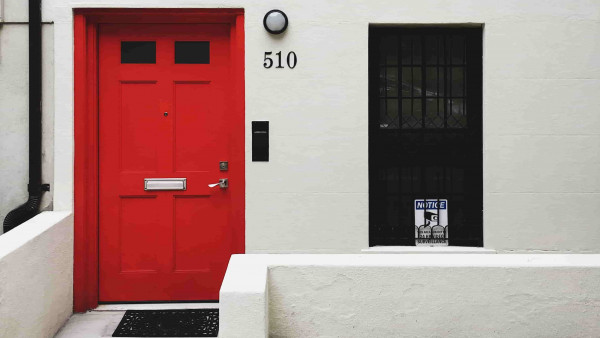Every transfer of equity will differ in scope, and there are several costs to consider when completing a transfer of equity. These range from solicitor’s costs to potential stamp duty.
Conveyancing Solicitors
You'll need a Conveyancing Solicitor to complete the legal requirements in a transfer of equity. Not only will they process all the required paperwork for you, but they can also advise you on your transfer.
Solicitors will charge different rates depending on different factors. These include:
- Property value
- Whether the property is leasehold
- How many mortgages there are on the property
- Whether you need to re-mortgage.
A Conveyancing Solicitor will likely charge between £100 and £500 + VAT. It’s always worth comparing prices of Conveyancing Solicitors so you get the right service for you for the best deal.
Solicitors will also be covering extra charges whilst dealing with your transfer. These include online ID checks (£8) and the official copy of the Register of Title from the Land Registry (£3). You will also have to pay a Land Registry fee to register the ownership change. This will cost between £20 and £125 depending on the price bracket your property falls into.
Mortgage Lenders
If you have a mortgage on your property, you may have to pay your mortgage lender extra charges. Often, lenders will charge you a ‘change of parties’ fee. This happens at the end of a transfer of equity. It covers the lender’s administrative costs of adding or removing someone from a mortgage.
Before the transfer goes ahead, some lenders require you to get a regulated local authority search to confirm the condition of the house. This often happens if you decide to get a new mortgage with a different lender. The cost of this can range between £60 and £300 depending on the size of the property.
Sometimes lenders won't make you carry out a local authority search. This can happen if the mortgage lenders are confident the house is in good condition. Instead, they may want you to take out local authority search indemnity insurance. This will cover them if they find out the condition of your house has changed.
If you are becoming the sole owner of your property, you'll have to meet your lender's mortgage requirements. This basically means your lender needs to check you will still be able to pay the mortgage. You may not get the same rate with your current lender and there may be other charges associated with this.
Stamp Duty when transferring equity
The largest cost you will face in a transfer of equity is Stamp Duty. During a transfer of equity, you’ll be taking on a certain percentage of the equity in a house. You may also be taking on part of any mortgage. You’ll have to pay Stamp Duty on the equity and mortgage if they are worth more than £500,000 in total. The amount of stamp duty you pay depends on what price band you’re the transaction falls in.
Due to a Stamp Duty holiday, the below information is applicable until March 2021 in England. Different rates apply to Scotland, Wales and Northern Ireland.
Below is a chart of the price bands:
|
Purchase price bands (£) |
Percentage rate (%) |
|---|---|
|
Up to 500,000 |
0% |
|
500,001-925,000 |
5% |
|
925,001 - 1,500,000 |
10% |
|
Above 1,500,001 |
12% |
For example, a property may have equity of £600,000 and a mortgage of £200,000. If you take on 50% of the equity and 50% the mortgage, this will total to £400,000. Under the current holiday you would not pay Stamp Duty.
The amount of Stamp Duty will change depending on your other assets, such as a second home. You only pay Stamp Duty if you are being transferred equity and/or the mortgage. If you are being taken off the title deeds, you do not have to pay.
Divorce or Separation
If you split the property in a divorce, either between you or under the terms of a court order, you won’t have to pay Stamp Duty. This is assuming that you and your ex-spouse were both on the title deeds and the mortgage.
However, if you are divorcing you may have a financial dispute with your partner. This might mean that the issue of the house is only one of the issues within a financial settlement. Though you will not have to pay Stamp Duty, be aware that there are other costs to pay during a financial settlement. See your solicitor for further advice if this affects you. You can also read our articles on financial settlements and divorce for advice.






